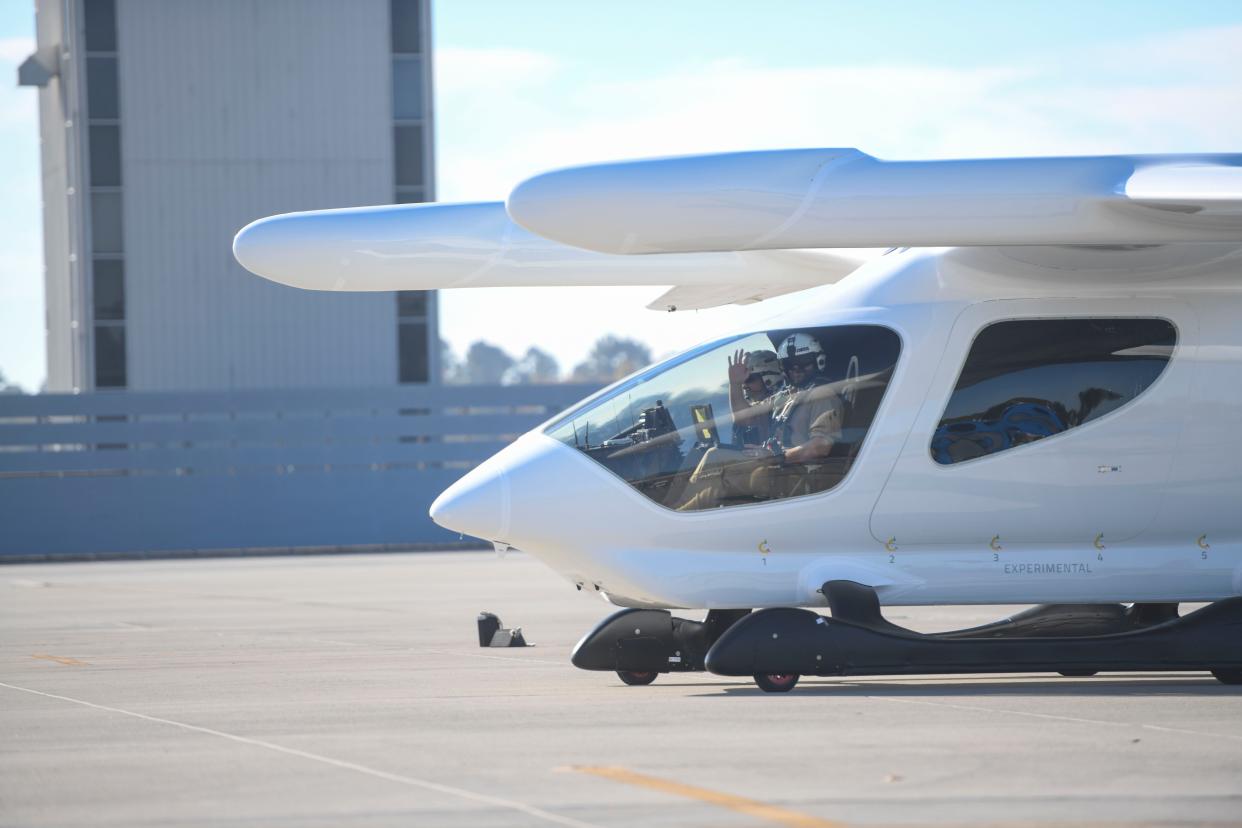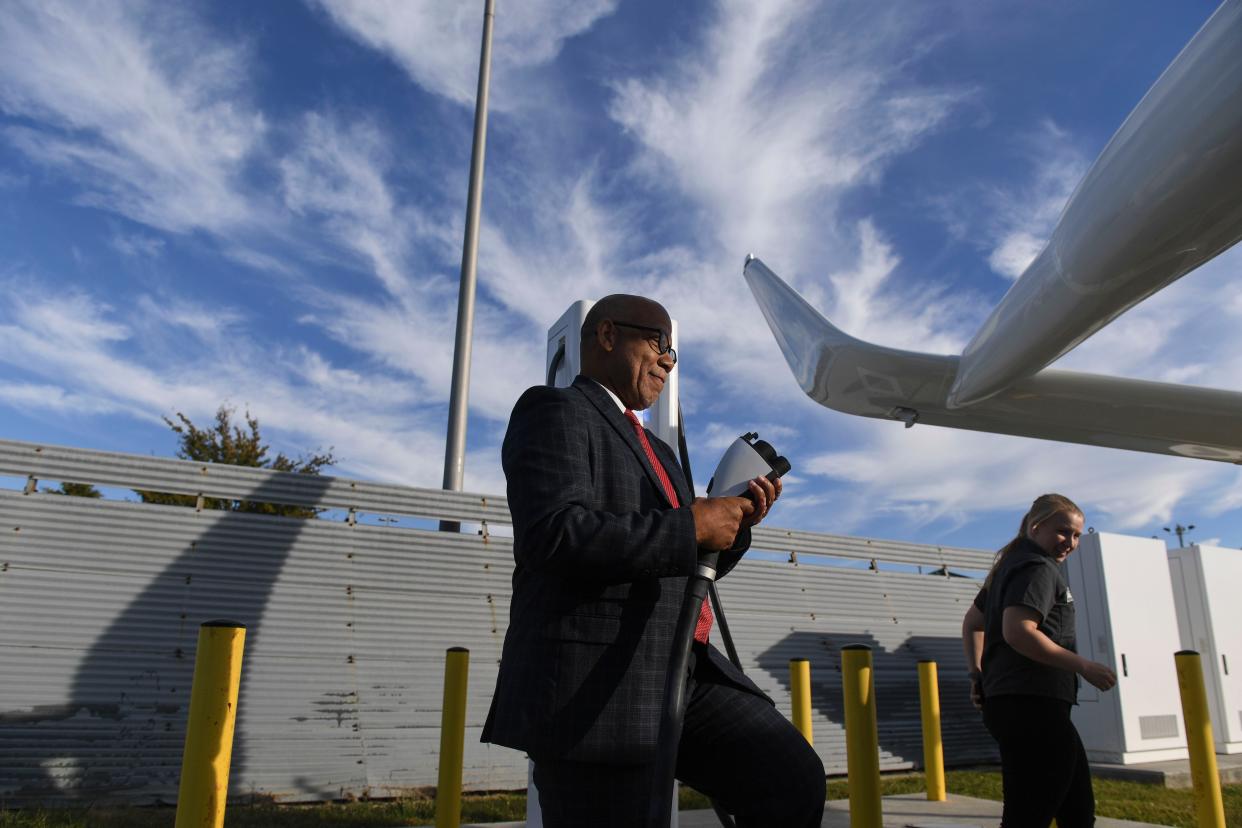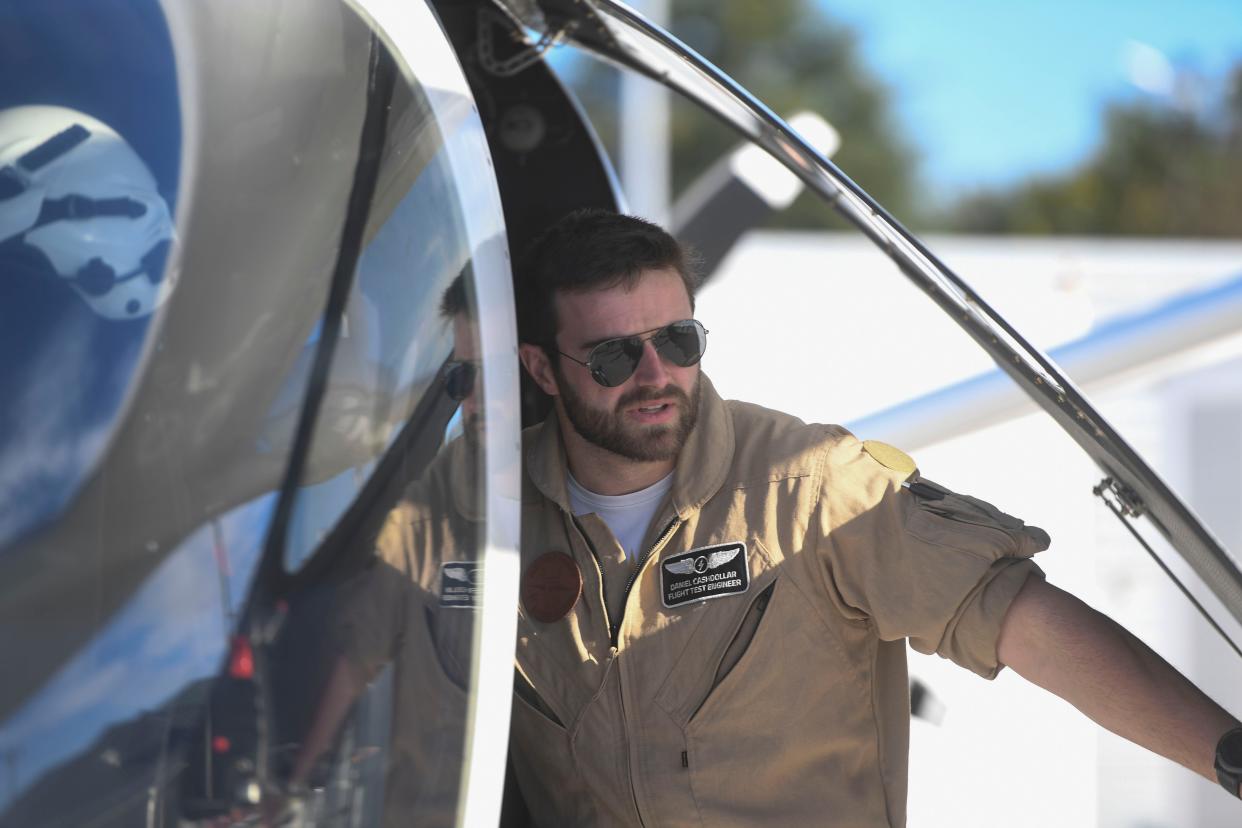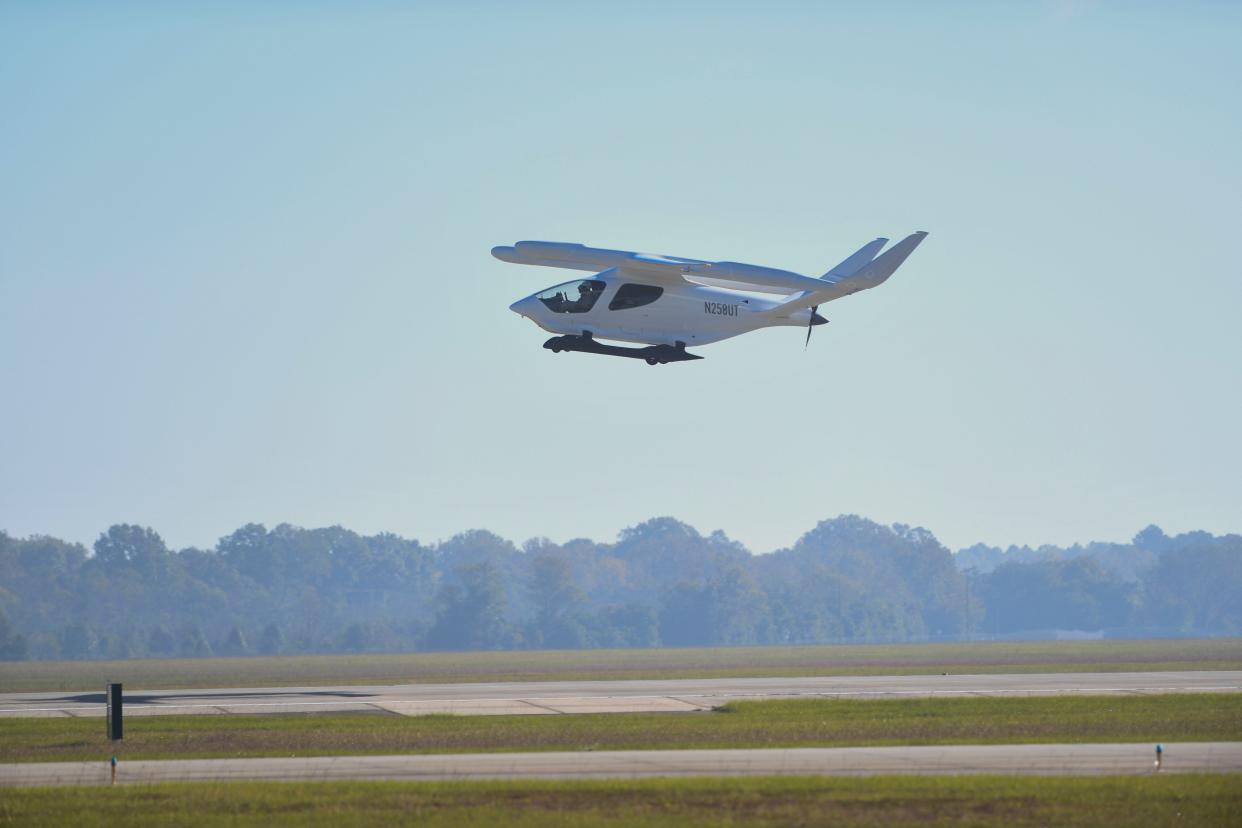Charge it: Future of electric aviation takes wing at Augusta Regional Airport

Augusta Regional Airport cleared a runway Tuesday to mark another milestone in state aviation history.
Georgia’s first airport with an electric plane charger has now charged its very first full-sized plane – the first of what stakeholders predict will be many more battery-powered aircraft visiting the Garden City.
"We recognize the importance of the future and some of these technologies right now that are emerging but undoubtedly are going to be part of the system in the future,” said airport Executive Director Herbert Judon. “We're proud to be kind of in the forefront of it."

The ALIA aircraft that visited Augusta is one of just two prototypes in the world, produced by Vermont-based aerospace manufacturer Beta Technologies. When they finally reach the retail market, electric planes built on the ALIA platform will accommodate either airport-to-airport passenger travel or heavier cargo payloads.
Beta installed its charger at Augusta Regional in March, making it possibly the only nonmilitary electric aircraft charger in the Southeastern United States. Beta installed a similar charger at Florida's Eglin Air Force Base earlier this year.
Sparking interest: Augusta Regional Airport unveils charging station for upcoming electric aircrafts
The plane was en route to the Florida panhandle to undergo further tests conducted by the U.S. Air Force, one of Beta’s development partners. Another partner, UPS, has contracted with Beta to acquire 10 of its completed planes, with an option for 150 more, in 2025.
Both prototypes share characteristics of both fixed-wing aircraft and helicopters. Beta’s other prototype in Plattsburgh, N.Y., is also equipped with four helicopter rotors to enable vertical takeoffs and landings.
In 2022, Beta reported an ALIA test flight of 336 nautical miles, or more than 386 regular miles. It’s believed to be the current world distance record for nonstop, battery-powered flight.

The plane can carry up to five battery packs, each the size of a Tesla automobile’s pack. Each pack can be removed separately to increase cargo capacity and charging time. An ALIA can fully charge in about an hour.
Designers modeled aspects of the ALIA after a bird with the world’s longest migratory path and prolonged gliding ability.
“It was designed after the Arctic tern, so it provides us great lift-over-drag characteristics,” said Beta flight test engineer Emma Davis. A typical single-engine Cessna can generate a glide ratio of about 7 to 1, meaning that for every seven units gliding forward it drops one unit of altitude.
And ALIA? “We’re at about 17 to 1,” Davis said. “She does like to fly.”

She likes to keep quiet, too. When ALIA runs on a lower power setting to land, the hum of the rear propeller is about all that can be heard.
“People will come up and say, ‘We thought the motor failed because we didn’t hear any noise,’” Davis said. “That’s just how it operates on an electric motor.”
Clement Solomon is director of the GDOT’s Intermodal Division Offices of Aviation, Rail, Transit, Waterways, and System Safety Oversight. Calling Tuesday’s event a “first in flight moment” for Georgia, he said the agency is preparing a wider study on “advanced air mobility” that he expects to be completed in January 2024.
“We’re very interested in innovation and doing things right and doing things early in the process, so we get to see what innovation looks like and help things grow in various parts of our state,” he said.
This article originally appeared on Augusta Chronicle: Augusta airport charges the first all-electric plane in Georgia
